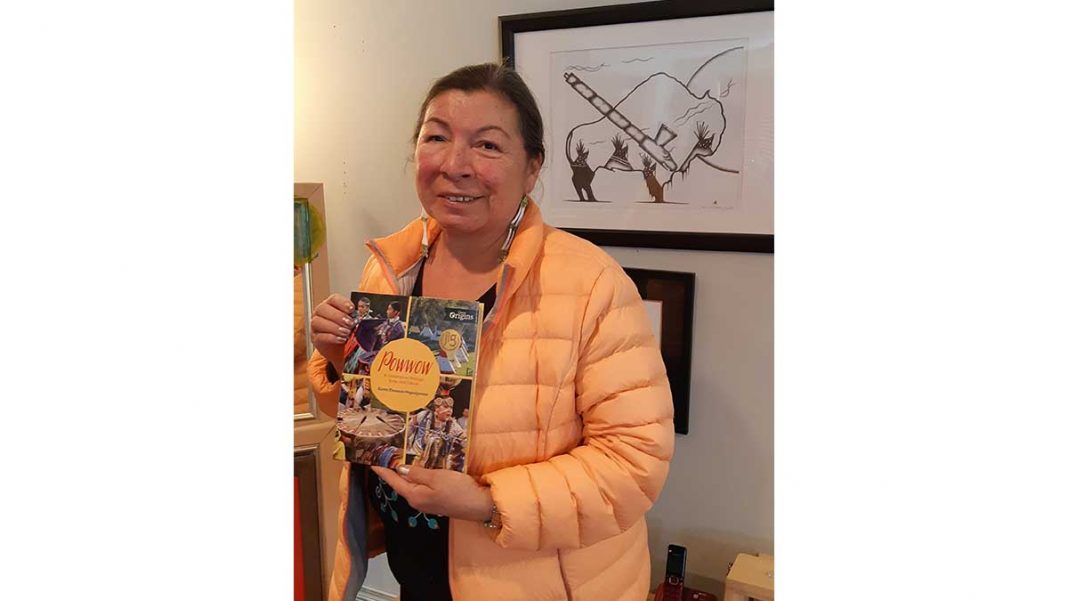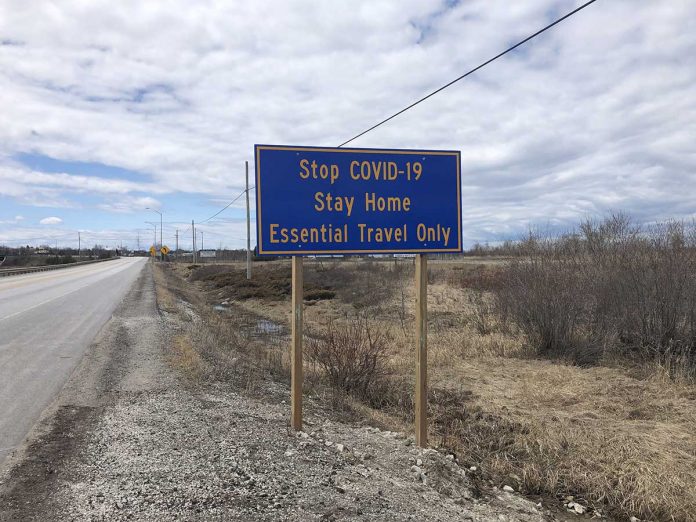CALGARY – Wiikwemkoong dancer, author and educator Karen Pheasant-Neganigwane is set to release her new book, ‘Powwow: A Celebration through Song and Dance,’ an educational title targeted toward younger readers that contains important knowledge for audiences of all ages and backgrounds as part of Orca Publishing’s ‘Orca Origins’ series about cultural celebrations around the world.
“I recently taught a required aboriginal education course at the University of Alberta, and it was shocking to see the limitations of what people know (about Indigenous peoples in Canada). That formed the context of writing this book, writing for that audience,” says Ms. Pheasant-Neganigwane.
The 88-page title is full of rich, colourful photographs and it tells a story about powwow culture as well as the history of Indigenous peoples in Canada and the struggles against oppressive policies throughout recent centuries.
This is reflected in the first chapter about the origins of powwow culture—the first sub-section is simply titled ‘Colonization.’ The book discusses the Indian Act, the pass system that forbade Status Indians from leaving the reserve without government approval and the legality of traditional celebrations, which were once outlawed but later permitted after they had been appropriated into travelling shows created by and for settler audiences.
Chapter two dives into an explanation of powwow culture and parts of the ceremony such as Grand Entry, the giveaway and sharing stories. In Chapter 3, Ms. Pheasant-Neganigwane shares an overview of the drums, songs and dance styles and chapter four concludes with an overview of powwows as they exist today across Turtle Island and a note from the author.
Her goal for the final word is to explain the true history of Canada and its relations with Indigenous peoples, to emphasize the importance of storytelling as an expression of who and what Indigenous peoples are and to highlight that there is no one definition of an “Indigenous” person.
Ms. Pheasant-Neganigwane is completing her PhD at the University of Alberta in education policy studies and wisdom-based approaches to teacher education. She had been encouraged to write this book by the late Greg Younging and Richard Van Camp.
“Typical tourists generally only know the aesthetics or the ‘beads and feathers,’ we might call them. They go to Grand Entry, ooh and aah, get a taco, maybe chat for a bit and leave. When I was asked to do this book, I wanted to help people understand how powwow culture and dance evolved out of the change in the Indian Act that allowed us to have ceremonies,” she says.
Ms. Pheasant-Neganigwane was raised in Toronto but her family would come home to Wiikwemkoong every summer, where she found much joy in traditional powwows. She began as a shawl dancer and later became a jingle dress dancer, which she has practiced for the past 30 years.
“Powwows were a time that allowed me to be an Anishinaabe-kwe, a Wiikwemkoong nation member; I could be excited and free. Come the end of the weekend or the end of the summer it was back to Toronto to try and fit in and conform to societal pressures,” she says.
The gaze of tourists watching her and her fellow Anishinabek dancing at powwows took away some of that joy. She met many people who did not understand the importance of these traditions. During Grand Entry, she would stay away from the outside, instead dancing in the safety of the centre, surrounded by her people.
Ms. Pheasant-Neganigwane would often disappear after Grand Entry until most of the tourists had left, before coming back out and celebrating her culture with fewer spectators. “The song entered me, it lifted my spirit and I felt beautiful,” she said.
In her book, Ms. Pheasant-Neganigwane attempts to cut through the commodification of certain powwow styles and uncover the true origin stories of certain customs. The jingle dress, for instance, is an Anishinaabe-made dance that originated in Northwestern Ontario.
Ms. Pheasant-Neganigwane notes the resiliency of Indigenous cultures that is often visible in ceremony. She cites a recent online powwow that started up at the beginning of the COVID-19 pandemic when people could no longer interact in person, so many people began posting videos of themselves dancing to an online group.
This book is not only written for non-Indigenous audiences; rather, Ms. Pheasant-Neganigwane says there are many Indigenous people across Turtle Island who have not been able to grow up with their own culture.
She was teaching an inner-city powwow dance class in Edmonton and noted that many of the participants were parents of Indigenous foster children. For those who lost their cultural grounding, learning the ways of powwows can become an entry point into reclaiming their traditional knowledge.
“I’m really appreciative that Orca allowed me to hold steadfast as an Anishinaabe-kwe, and recognizing in my first chapter, the introduction, the picture of my house in Kaboni and sharing a picture of my grandma and grandpa who were farmers at Murray Hill,” she says.
Ms. Pheasant-Neganigwane says every generation dances for a different reason and her own children are now continuing to share traditional teachings about powwows and celebrate their heritage. Daughter Sophie Pheasant travels to conduct community dance workshops and presentations and son Matthew Pheasant has danced professionally for events such as the Vancouver 2010 Olympics and festivals across the continent.
This new book has already been getting strong reviews, such as from the School Library Journal which gave it a star for its excellence and declared it “a necessary purchase.”
‘Powwow: A Celebration through Song and Dance’ officially launches on April 21 and it is available for order at OrcaBook.com.





